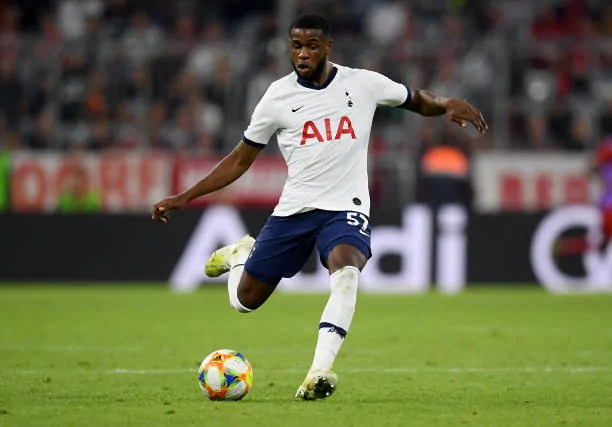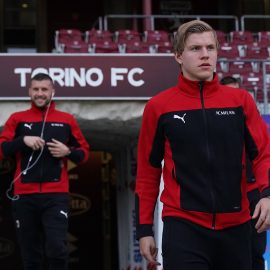This is a two part article. Continuing from Part I of Football in Italy: Crisis, Problems & Solutions.
Financial Crisis at Club Level
As we said in the first part of this article, Italian soccer crisis does not involve the national teams only, clubs have big problems too. Inter’s executives decided to sell some players due to the UEFA “Financial Fair-Play” that will be operating in the future, and Balotelli himself probably will sign for Manchester City.
This is a bad news: maybe Inter could do more to convince the player to stay, though it seems he wanted to leave; anyway, the bad news is that no other Italian club could afford the striker’s signing costs. Also, the last top players arriving in Italy (we would say the only ones in the last 5 years) are Samuel Eto’o and Wesley Sneijder, but they came as Inter gave Zlatan Ibrahimovic (their best player) up.
Financial fair-play means that costs have to be compared to income, so how can Italian clubs earn more money? Sources are always the same: UEFA (just for the clubs playing the European cups), stadium, merchandising and sponsorship, TV rights. Solutions are so easy to recognize as they are difficult to put into practice.
The rule for a good business management is to have 33% stadium, 33% merchandising and sponsors and 33% TV rights. On the contrary, Italian clubs income is dominated by TV rights, this brings a lot of money but at the same time TV channels decide schedules and clubs activity.
There are games played in January at 8:30 pm in the North of the country with -11°C, pitches unfit to play and of course games become a bad show with empty stands.
Stadia
Regarding stadia, unfortunately we have to take again Germany as a benchmark. In 2009-2010 Bundesliga had an average attendance of about 42,000 against the 24,000 in Serie A or 34,000 in Premier League. It’s not difficult to understand: they have modern, comfortable stadia while in Italy they are old and uncomfortable.
Again, Italian stadia are not owned by the clubs, so they don’t bring them money. There was an exception, the “Stadio del Giglio” of Reggiana Calcio, but they went bankrupt and now it is owned by a trusted in bankruptcy of Reggio Emilia Court.
So, while clubs talk about the stadium each time they lose (there’s been an unforgettable interview to AC Milan CEO, Adriano Galliani, where he said the reason why Milan was knocked-out by Manchester United of the Champions League was that the English own Old Trafford while Milan don’t own San Siro), there have been few steps to the building of new homes for Italian clubs.
The only exception is Juventus: the Black & Whites are supposed to play in their new home as from the 2011-2012 season, they are building their own 40,000 seats stadium on the site of former Juventus home, Stadio Delle Alpi. Generally speaking, no concrete results are obtained by other clubs and words seem to remain useless as often Municipalities – owners of the current stadia – make things difficult for clubs to build a stadium.
For example, Inter Milan’s president Massimo Moratti has often “threatened” to leave Milan and build an arena in the surroundings. Recently, the Municipality of Milan (curiously the Mayor is Moratti’s sister in law) changed its Territorial Plan adding the adjective “public“ to the stadia that may have economic help.
This means 200 million Euro more to spend for Inter, if they want to build their new stadium in the area of a disused Italian army barrack downtown.
Restrictions on Ticket Sale
Another important issue are all the restrictions in ticket sales decided game by game by the Observatory for sports events of the Ministry of Interior. Entire sections closed for visitor fans, due to past rivalries between teams, often for fights outside the stadium (sometimes hundreds of miles far from the place where a game is played), where clubs have no responsibility as they cannot do anything to avoid it.
They should sit around a table with their counterparts and find new solutions. The “Tessera del tifoso” (a card for registered fans that allows to buy tickets for away games and season tickets) could have been a solution but the fans are demonstrating against it, and all the clubs are late in discharging the duties to make it work.
It is perceived as a marketing tool, disguised as a security facility for fans. Anyway, the clubs should be more proactive, while now they are suffering someone else’s decisions with poor results for their accounts.
Marketing, Merchandise, Fake Kits
Last but not least, sponsorships, merchandising and official kits sales. You ought to know that Italian fans are not used to wear official products during everyday life, someone does this at the stadium during the games but it’s still a minority. Second, there’s a big business for unofficial kits that give no money to clubs and it is not fought enough by the Police, normally you can find those “fake” kits and merchandising around the stadium before, during and after the matches.
A lot of clubs, also the biggest ones, have commercial departments that are not on a level with the ones of other top leagues. Think about Inter Milan and the stock-out they had for all the clothes celebrating the Champions League win. And it’s not a case that Mr. Moratti is credited with the statement: «We don’t want to take advantage of fans’ passion».
He should know a lot of fans are happy to spend some money to buy something with the club’s logo and help their turnover to increase. Just to tell a personal experience, some weeks ago I tried to buy a baby kit of my favorite team for my 9 months old son, but in their official website it was sold out and wasn’t available for order too.
Debts and Player Wages vs Sponsorships
We are talking about Serie A giants but, if we go down to lower levels of professional Italian soccer, we find that the situation is much worse. Every year there’s at least one Serie B and many LegaPro (ex Serie C) clubs that disappear for debts.
After the rupture that has brought to creation of two different leagues, Serie B alone found a new sponsor (Bwin) for 2.2 million Euro, but the difficult purpose is to get closer to the English Football League, whose income for the Npower sponsorship is £21 millions for 3 years.
The worse situation is for LegaPro, First and Second Division (level 3 and 4): there, many clubs have to withdraw for economic problems, players (this is also a Serie B problem and sometimes it happens in Serie A) are not regularly paid. For the first time the league decided not to replace all the clubs that withdrew but, despite that, Italy has the biggest amount of professional teams: 127, 11 more than England.
There is a record number of unemployed players, someone thinks of coming back to previous jobs, but AIC has just launched a campaign to have a longer Winter break, in order to give players more time to stay with their family during Christmas holidays.
Winter Break Mismanagement
At the moment, there’s a three weeks break, Italian fans are left without football in a period of the year where they have money to spend and time to have fun: we think they should play more at Christmas time. The problem is that the players’ association doesn’t say when they should play those games: earlier in August? Or maybe seasons should end in June? Should they decrease the amount of professional teams?
The answer to all these questions is no, so a longer winter break means only an incredible concentration of games in an 8 months season, and it’s likely that attendance could even be lower if there are games every 3-4 days, always.
Prosposal
Let’s finish our journey around the situation of Italian soccer with a proposal that for someone sounds like a provocation, but it would give a solution to a couple of problems we’ve found. Big clubs have a great budgets for the entire youth system, a Primavera (20 years old) team costs around 10 million Euros. Why don’t allow these clubs to enter Serie B or LegaPro with a second team (Juventus II, Inter II, etc.)?
Now a player’s path from youth system to big clubs is: he plays in Primavera team two or three years, than a couple of years in a lower level team on loan, to be back to the parent company if he deserves to stay there. With this solution, they could play in Serie B or LegaPro a couple of years earlier and be ready for first team (and obviously for the national team).
This proposal has no hope to pass, but for sure it could be useful to save calcio before it’s too late.
Add Sportslens to your Google News Feed!






